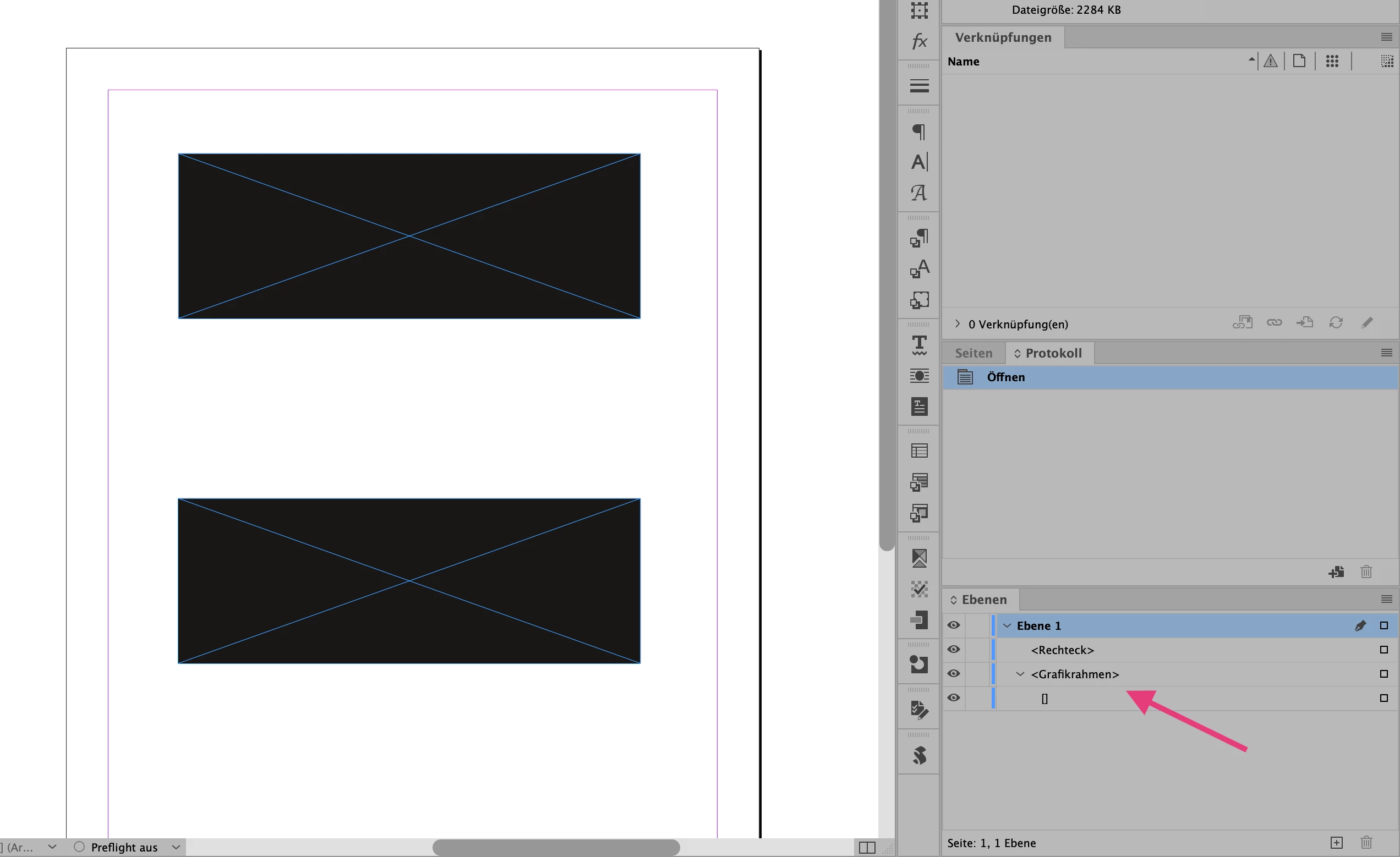Inspiring
December 14, 2024
Question
Rectangle vs. Graphic Frame
- December 14, 2024
- 2 replies
- 1673 views
Hi all,
does anyone have any idea how to differentiate between these two rectangles using ExtendScript.

About the creation process: An XML tag was assigned to the lower rectangle, which was then removed. This way, the appearance in the layer palette can be recreated.
They do not differ in IDML. Thus, the lower element becomes a “normal” rectangle when the IDML file is opened.
Thanks for any hints
Roland

